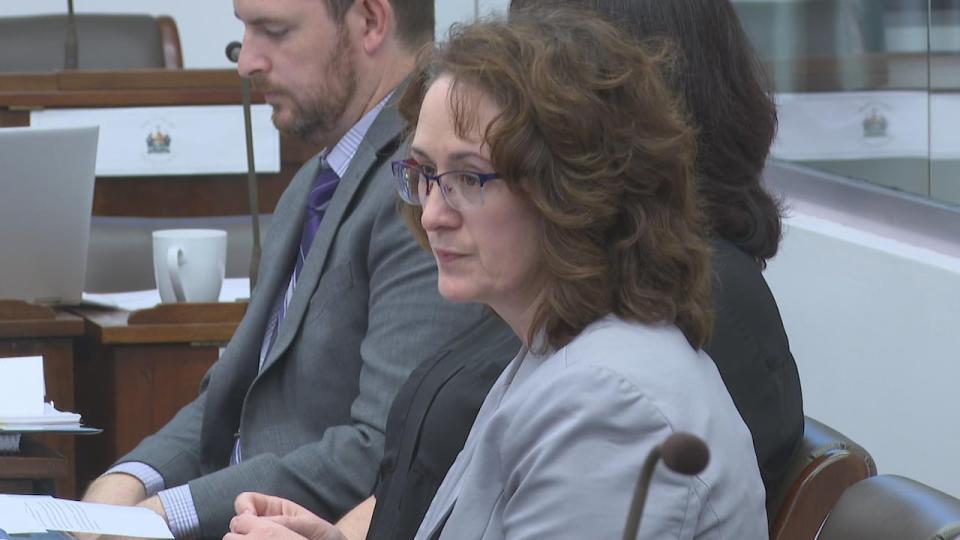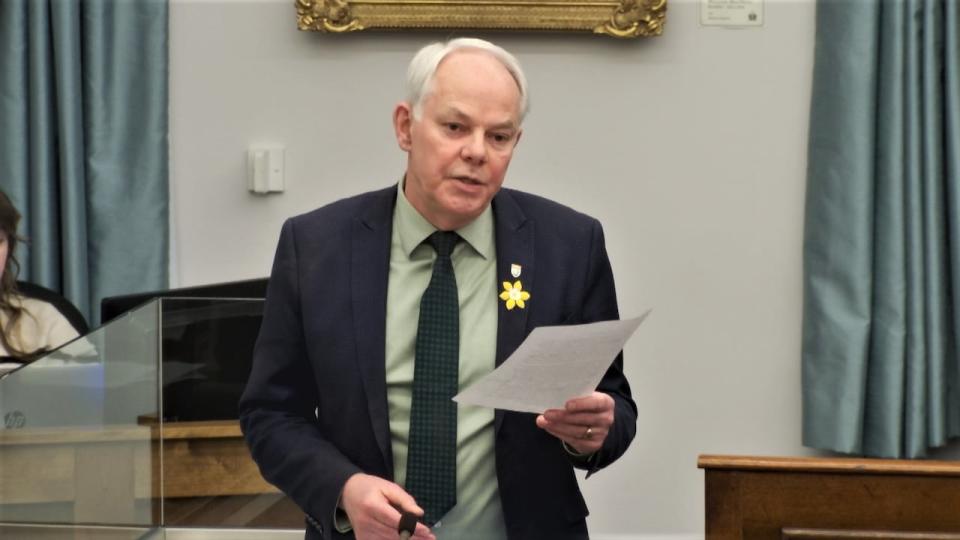P.E.I.'s finance department working to fix problems identified in AG report, officials say
P.E.I.'s deputy finance minister and other senior staffers answered MLAs' questions Tuesday about an auditor general's report that was critical of their department.
Auditor General Darren Noonan's report, released in February, cited the government's lack of an internal auditing function and high costs related to spending through so-called special warrants, among other issues.
The report also flagged $4.53 million in overpayments the province issued to 23 municipalities last year, which those communities were then told they had to pay back — in some cases after the money had already been spent.
Denise Lewis Fleming, the province's deputy finance minister, told a legislative standing committee on Tuesday that those overpayments were due to human error.

When it came to government's use of special warrants — expenditures that fall outside the provincial budget that are authorized by cabinet without a vote in the legislative assembly — the AG's report said there were 23 late special warrants issued after August 2023.
Those totalled about $143.8 million, the most the province has ever reported.
Green Party MLA Peter Bevan-Baker said Tuesday that the use of these warrants avoids oversight by the legislative assembly.
"It takes that trust and that level of transparency that Islanders have to have in their government away," he said. "And so we really should limit the use of special warrants to very particular circumstances."

Bevan-Baker said other provinces and the federal government limit special warrants to urgent circumstances.
Fleming said there's been work done over the past year to help government departments decrease their number of special warrants. She said there were a lot used during the COVID-19 pandemic and into 2023, but the number is trending lower this year.
"The number of special warrants may very well always be a little bit higher than what it was historically in the past," Fleming said.
"We now have more appropriation votes because we have more individual appropriation vote lines for Crown corporations, so when you add more in, you increase the likelihood that [the] budget is never going to be exactly right."
Department looking for auditing consultant
The committee heard that the finance department still has no internal auditing function.
Judy Killam, the province's comptroller, said internal auditing is done on a day-to-day basis to ensure payments are accurate and complete. When an internal auditing function is established, it will be under her purview.
She said her office will be hiting a consultant to examine how that could work.
Killam said the establishment of an internal audit office isn't expected until early in the 2025-26 fiscal year.
'They can't pay that money back'
Fleming told the committee that the department has put measures in place to avoid errors like the overpayments to municipalities.
In the case of the $4.53-million overpayment, she said a finance employee did not go back to the source documents to make sure the calculations were done correctly.
"When it's down to that final stage, a paper copy gets printed, and that's the copy that then a second set of eyes looks at separately now and verifies," said Fleming.
Liberal MLA Hal Perry said it's not right for municipalities to be given money for projects in waiting, then be asked to pay it back.
"Now they find themselves in the situation where they really can't pay that money back because of limited revenue coming into those municipalities."
The finance officials said some of the municipalities have already paid back the money, while others are using payment arrangements.


